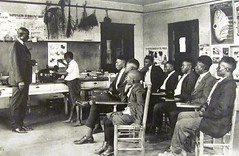 Once upon a time, everyone came to class on the first day ready to work. Students had the books in hand, and they were ready to dive right into the course. A few might have even read the book before the first session and knew the information well enough to explain it to their classmates.
Once upon a time, everyone came to class on the first day ready to work. Students had the books in hand, and they were ready to dive right into the course. A few might have even read the book before the first session and knew the information well enough to explain it to their classmates.
Times have changed, but it’s still possible to find a happy ending during that first week. You just have to keep the realities of the academic system in mind. With the current system at Virginia Tech, most business and technical writing classes are full before the first day of class. You might think that means that you can send out an email with details on the syllabus and book before the first session so that everyone is ready to go on the first day. Unfortunately, that system only works in fairy tales.
First Week Challenges
Because of the way course request works, your class roster isn’t set until at least the last day to add. Up until that date, someone may drop your course and a new student may add. During the fall and spring terms, that period is a week. During the summer and winter sessions, it’s three days. This enrollment system means that you may have a new student who will not have seen the syllabus or had the opportunity to purchase the textbook as late as eight days into the term during the fall and spring terms and as late as four days into the term during summer and winter sessions.
Even if the enrollment doesn’t change, a few students seem to always have problems getting the books. The bookstore may run out. Their financial aid hasn’t come through. They have to wait until pay day. They have to wait for Amazon shipments. So even if you have the same students you started with in the first day of class, you have to allow up to a week for them to have the textbook.
My Solutions
I have found that to be fair to everyone I either have to delay all deadlines or allow for generous make-ups. Since I hate keeping track of the 1001 reasons and students who need extensions, I use these guidelines to set up deadlines and the course work during the first week:
- I email the syllabus and textbook information before the first class; however, I think of it as a way to help students get ahead, not a pre-class to-do list.
- I take attendance beginning on the first day of class, but I don’t count absences against students until they are enrolled in the class.
- I collect in-class work or quizzes during the first week, but accept that work through the end of the second week of classes. After that, I tighten the due dates.
- I strongly encourage students not to procrastinate if they have the ability to complete the work that first week. Most of them will submit their work prior to that last day, which helps with my workload.
- I assign readings during the first week, but focus on material that will likely be review, like information on process-based writing and the rhetorical considerations of audience and purpose.
- I supplement with online materials that match the textbook readings to help any students who have trouble acquiring the textbook. I do not necessarily provide such supplements after that first week.
- I begin the first major writing project during the first week, but I choose a project that does not rely on the textbook so that everyone can begin the project. Recently, I have been using a Professional Bio Assignment.
I have found that any other system results in heartbreak, either for students or me. From my perspective, these guidelines ultimately save me time and energy. I tried making work due quickly during the winter session because of the very short time allotted for the course, but I had a student add on the last day to add the course, making him three days behind. I had to rearrange all the due dates in the system to give him time to complete the quizzes and other work. Now I set up the course so that these problems don’t come. Students are happier, and so am I. Maybe not happily-ever-after happy, but at least I’m not the evil villain.
[Photo: Berry O'Kelly School, Early 1900s by Universal Pops, on Flickr]